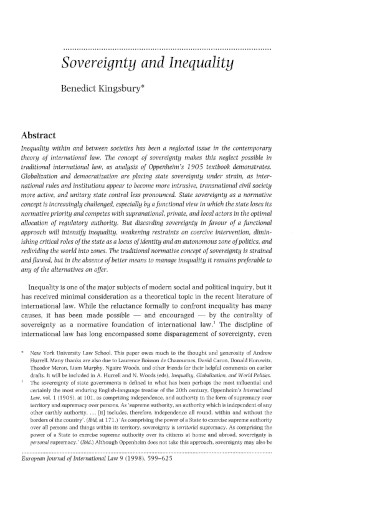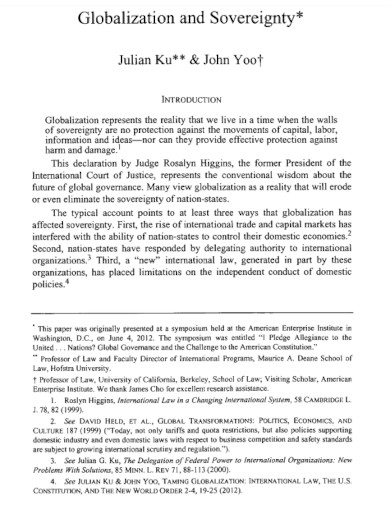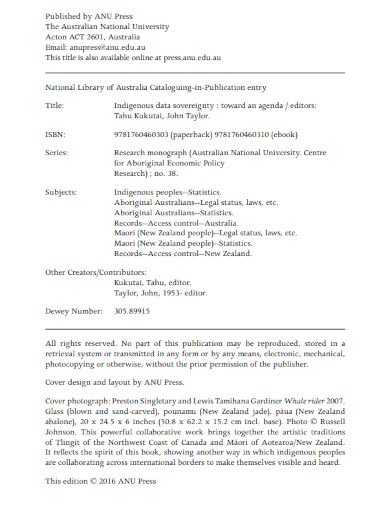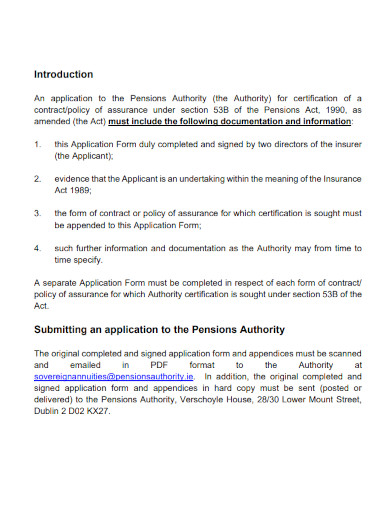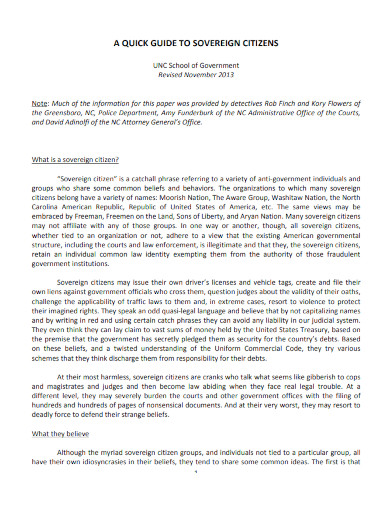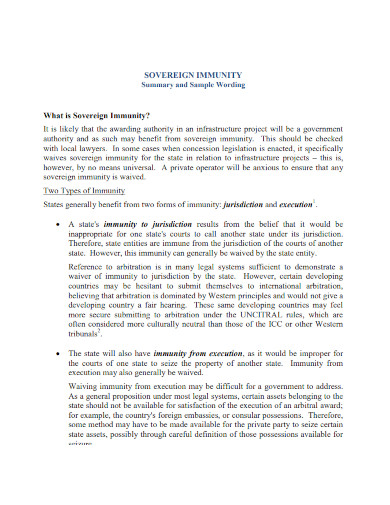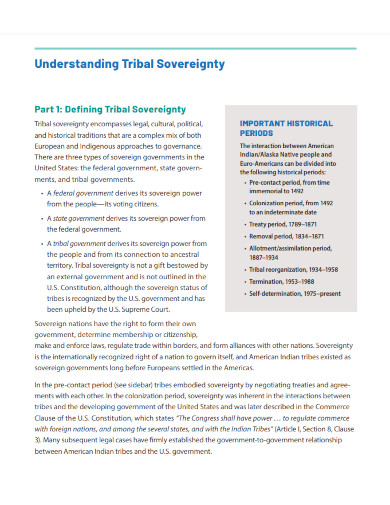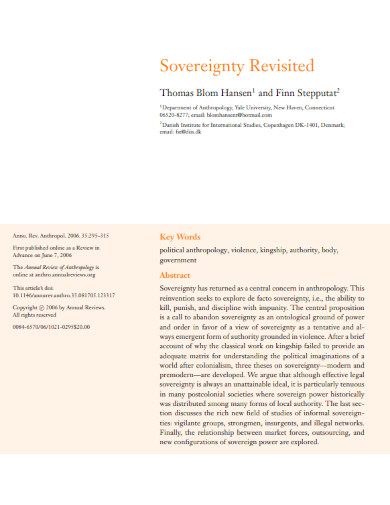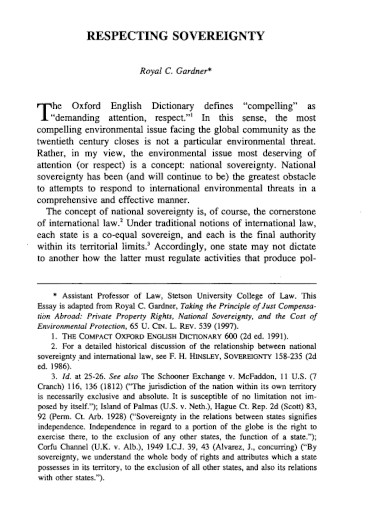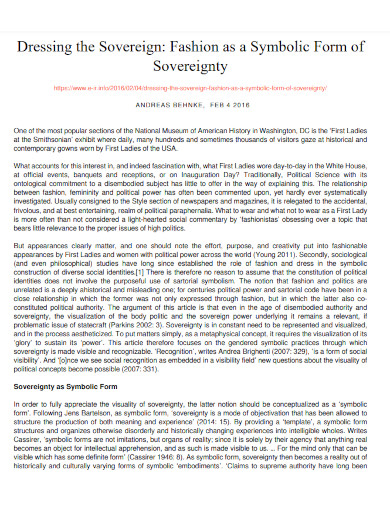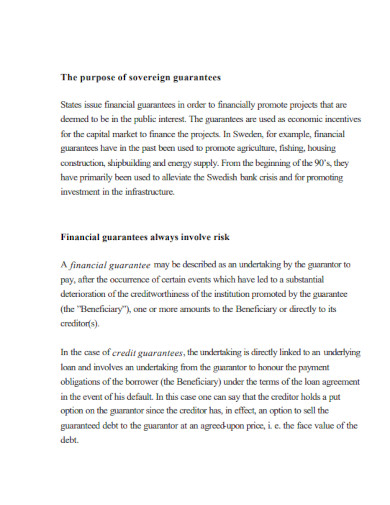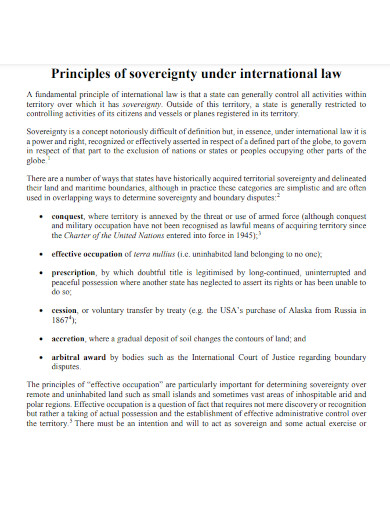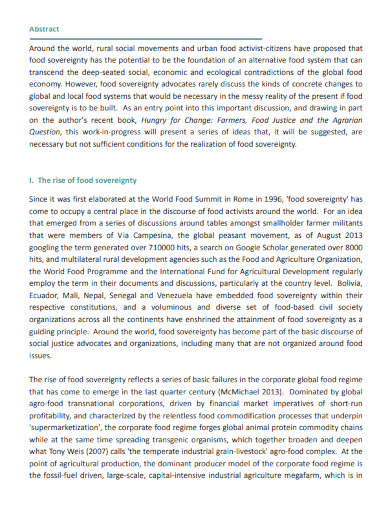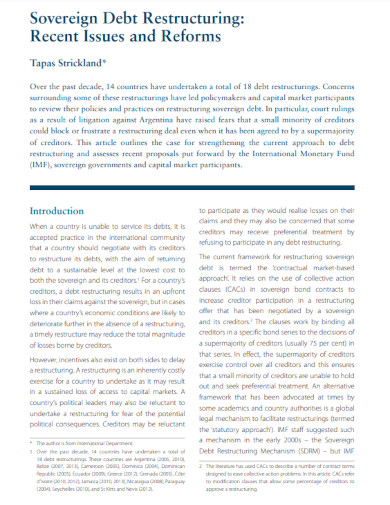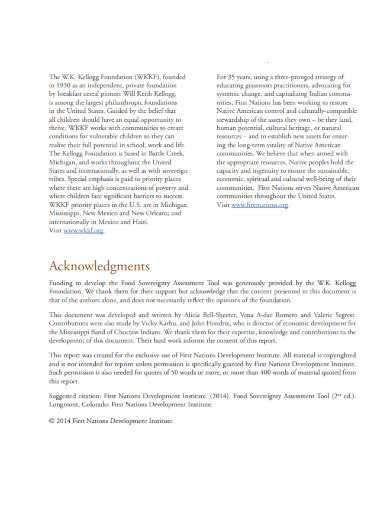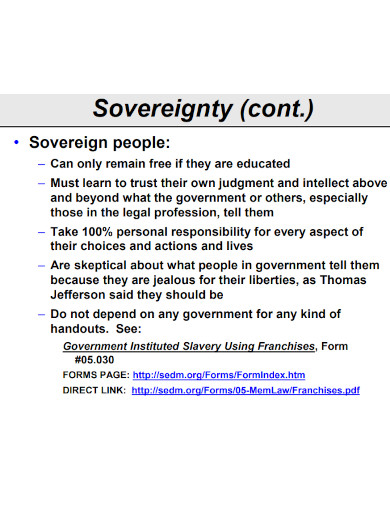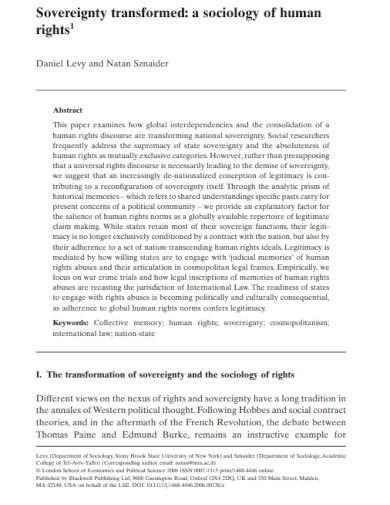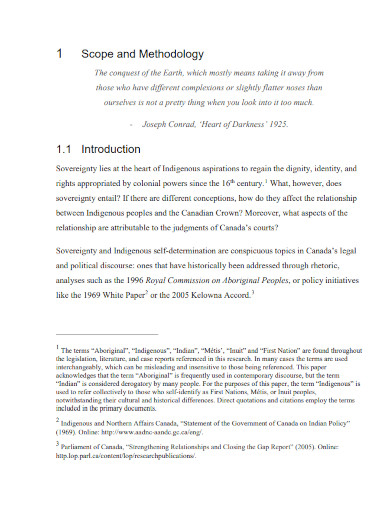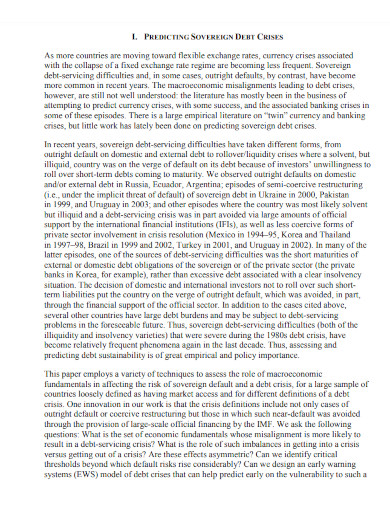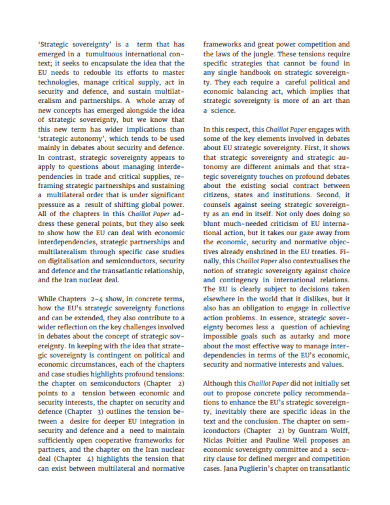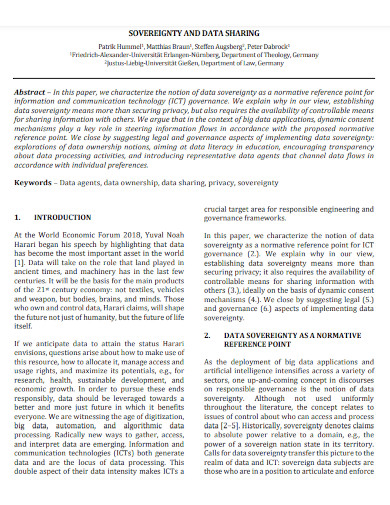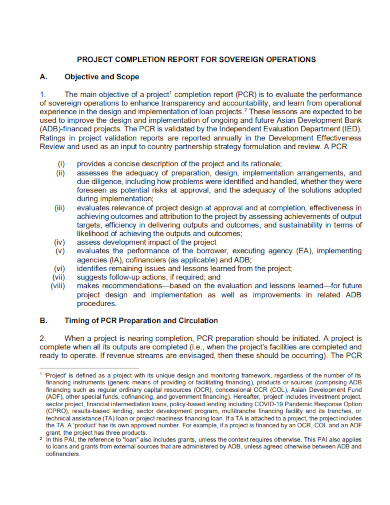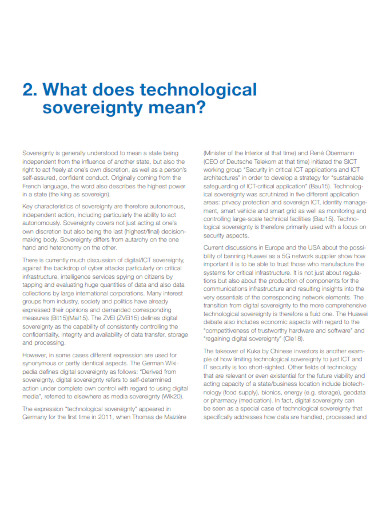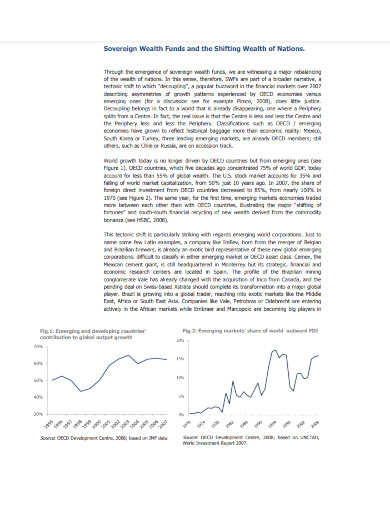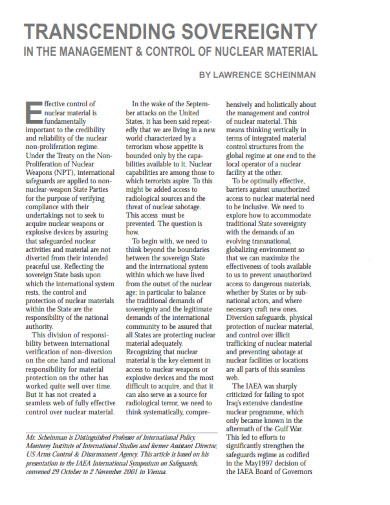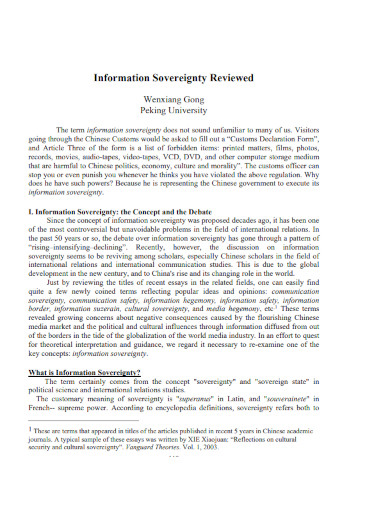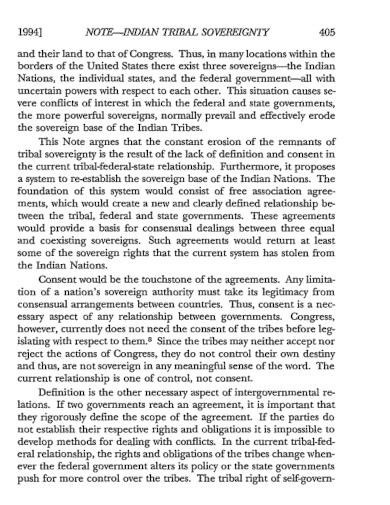28+ Sovereignty Examples to Download
When a child is born in a different country that is far from their culture, ethnic group, or ethnicity and/or their parent’s country of origin or race, they are considered dual citizens of the country they were born in and the country of their parents. This is due to the sovereignty of the country they were born in and the laws they hold.
1. Sovereignty and Inequality Template
2. Globalization and Sovereignty Template
3. Indigenous Data Sovereignty
4. Sovereignty Technology Template
5. Sovereign Annuity Application Form
6. Guide to Sovereign Citizens
7. Sovereign Immunity Template
8. Understanding Tribal Sovereignty
9. Sovereignty Revisited Template
10. Respecting Sovereignty Template
11. Fashion Symbolic Form of Sovereignty
12. Sovereign Finacial Guarantees
13. Principles of Sovereignty Under International Law
14. Food Sovereignty Template
15. Sovereign Debt Restructuring
16. Food Sovereignty Assessment Tool
17. Citizenship and Sovereignty Form
19. Sovereignty Transformed Template
20. Conceptions of Sovereignty Template
21. Predicting Sovereign Debt Crises
22. European Sovereignty Template
23. Sovereignty and Data Sharing
24. Project Completion Report for Sovereign Operations
25. Technological Sovereignty
26. Sovereign Development Funds
27. Transcending Sovereign Template
28. Information Sovereignty Reviewed
29. Sovereignty by Sufferance Template
What Is Sovereignty
Sovereignty refers to a country or state’s ability to conduct its affairs independently without the need for another country or state’s permission. Not only does sovereignty affect the individual’s nationality, but it will also account for any technological advances made under the country’s sovereignty. If you want to have an in-depth understanding of the context, themes, and tones of sovereignty on the links above.
How To Figure Out If a Country or a State Has Sovereignty
Sovereignty allows the country or state to act on its own without being dependent on another country or state to govern it. Before the set international body can consider a specific country or state to have sovereignty they will need to meet a specific set of criteria.
Step 1: Determine The Overall Population of The Country or State
Begin by determining the overall population of the country or state. The number of people has both permanent and numerous.
Step 2: Examine If The Country or State Has a Single Presiding Government
You must examine if the country has a single presiding body of government led by either a single political entity or a group of political entities. If there are numerous foreign bodies of government in a single country or state, then it cant be considered to have sovereignty.
Step 3: Check If The Country or State Can Make Relations With Another Country or State
Another factor you will need to check is whether the country or state can make relations with another country or state. A country can only be considered to have sovereignty when it can do so.
Step 4: Research If The Country or State Has a Defined Territory
A country or state cannot be considered to have sovereignty if it has no defined territory. You must research whether the country has its own defined territory lines.
FAQs
What does it mean to maintain sovereignty?
When a country wants to maintain its sovereignty, it would refer to a specific country’s ability to maintain ownership over a specific territory and extend its laws over the said territory. This is very important as there are some locations within the specific country where the soil of that location is considered under the sovereignty of another country. An example of this situation is the foreign embassies located in the country, the area around this structure will be under the country being represented by the embassy.
What is titular sovereignty?
Titular sovereignty is a type of sovereignty that refers to the existence of a ruler in a given state but said ruler cannot exercise any power over the people and the country. This means that this person is only a ruler by name and title. Examples of titular sovereignty include the royal family of Great Britain and the now King Charles III and the royal family of Japan and their Emperor Naruhito. These entities are deeply respected by their citizens as they are deeply connected to the history of their associated countries.
What are a country’s sovereign rights?
A country’s sovereign right refers to the country’s ability to do whatever it wants with complete freedom inside of its territory. This means that political entities with the proper jurisdiction and role can make decisions that would represent the country’s sovereignty. These roles include presidents, prime ministers, and other roles with the same type of authority.
Sovereignty refers to the ability of a country or a state to govern itself or another state. This is very important to take note of as some places in the world have complex sovereignty over other locations. Not only that, but an individual should also be able to figure out their country’s sovereignty so that they can know what to do and what not to do if they have a career goal, objective, or goal statement to immigrate to another country.



